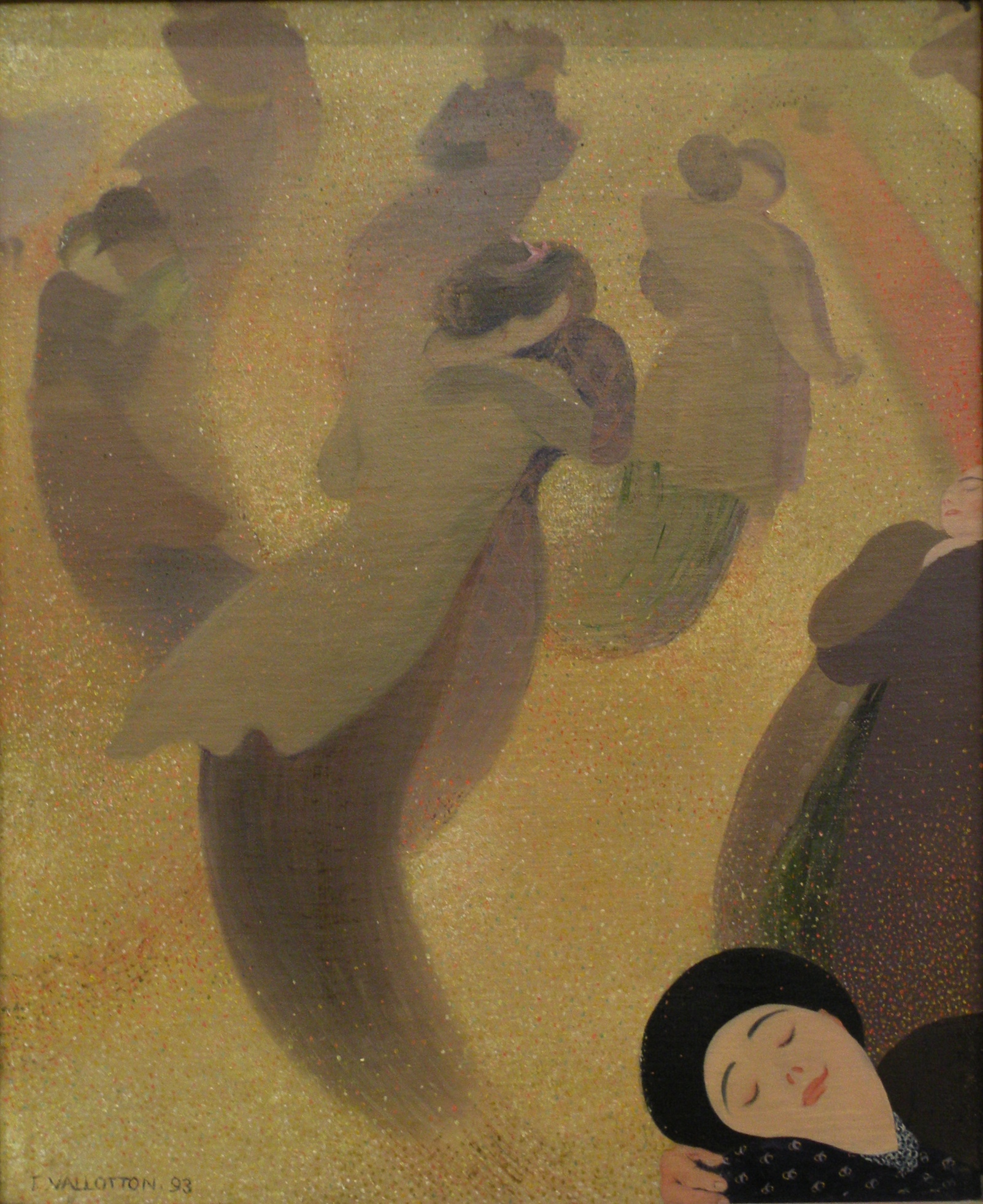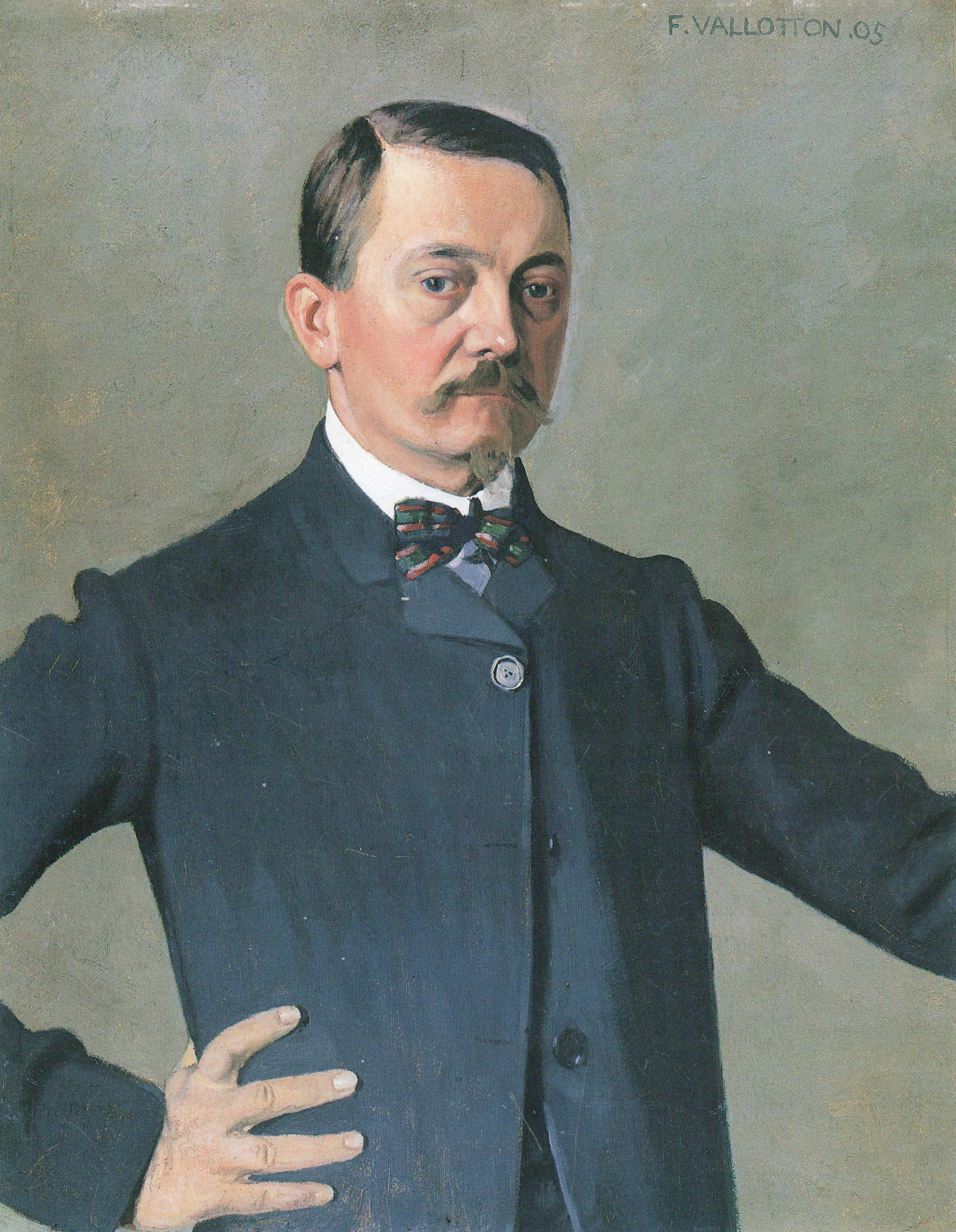The Waltz was one of the first Nabi paintings by Swiss artist Félix Vallotton. The Nabi movement, which lasted only a few years from 1888 to 1900, advocated a new spiritual impetus by means of art, combining all forms of artistic expression.This painting depicts ice-skating couples twirling on the former Palais des glaces rink at the Champs-Élysées roundabout in Paris. True to the principles of the Nabi movement, which aimed to free painting from the bonds of realism and perspective, the work is done with an obvious desire to simplify shapes. Vallotton places emphasis on the image of the couples who bring the dance to life, as opposed to the individual characters, most of whom cannot be identified.
The couples intertwined in sinuous ellipses and the multitude of tiny multi-coloured dots in the space around them contribute to the evocation of a night-time fairytale world in the glow of the artificial lights (the fine dust of ice lifted by the skaters and caught by the spotlights). While the composition has not abandoned all references to perspective, with the red line of the balustrade cutting across the upper right corner, Vallotton introduces highly modern elements of construction.
Like Degas, the artist widens the frame of the scene by placing several protagonists outside of the field of view, particularly the young woman in the bottom right of the painting. Wrapped in her partner's embrace, of which only his hand resting on her shoulder can be seen, she gives herself over to the dizzying dance with joy and abandon. In a strong counterpoint to this sprinkling of light and waltz of movement, the figure of the woman skating, etched like a woodcut (which very probably inspired him), gives the scene an image filled with the joy of being alive.


 Félix Vallotton
Félix Vallotton